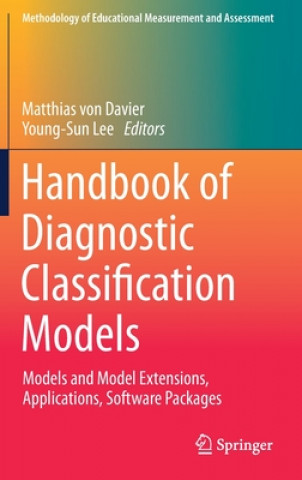
Kód: 20637624
Handbook of Diagnostic Classification Models
Autor Matthias von Davier, Young-Sun Lee
This handbook provides an overview of major developments around diagnostic classification models (DCMs) with regard to modeling, estimation, model checking, scoring, and applications. It brings together not only the current state ... celý popis
- Jazyk:
 Angličtina
Angličtina - Väzba: Pevná
- Počet strán: 656
Nakladateľ: Springer Nature Switzerland AG, 2019
- Viac informácií o knihe

276.65 €

Skladom u dodávateľa v malom množstve
Odosielame za 12 - 15 dní
Potrebujete viac kusov?Ak máte záujem o viac kusov, preverte, prosím, najprv dostupnosť titulu na našej zákazníckej podpore.
Pridať medzi želanie
Mohlo by sa vám tiež páčiť
-

Creating Thinking Classrooms
46.29 € -
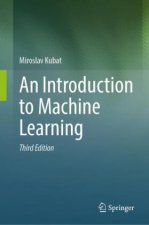
Introduction to Machine Learning
79.40 € -

Feature Engineering for Machine Learning
72.14 € -

Oh My Gouache!
17.67 € -23 % -

Level 2: Marley and Me
10.31 € -4 % -
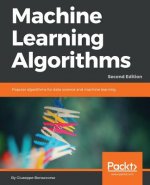
Machine Learning Algorithms
65.91 € -

My Sister, the Serial Killer
10.01 € -9 % -

Home Jungle
34.94 € -

To The Lighthouse
10.82 € -10 % -

Feature Engineering and Selection
118.44 € -

Don't Shoot the Dog: The Art of Teaching and Training
16.55 € -22 % -

Engineering Mathematics
65.40 € -5 % -

Harrow the Ninth
15.93 € -23 % -

Legend Of Final Fantasy VIII
26.26 € -15 % -

Guided Tarot: A Beginner's Guide to Card Meanings, Spreads, and Intuitive Exercises for Seamless Readings
17.77 € -17 % -

Supermarine Spitfire V
25.85 € -2 % -

Sacred Rebels Oracle - Revised Edition
22.78 € -

Art Of Immortals: Fenyx Rising
41.38 € -23 % -

Snowflake Cookbook
60.08 € -

Beautiful World, Where Are You
9.80 € -24 % -

Skyward Flight
24.11 € -23 % -
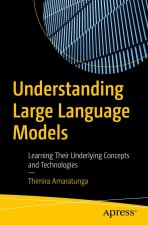
Understanding Large Language Models: Learning Their Underlying Concepts and Technologies
44.14 € -4 % -

Batman: The Long Halloween
24.72 € -21 % -

We're Going on a Bear Hunt
7.35 € -22 % -

Infernal Devices 2: Clockwork Prince
8.98 € -1 % -

Discovering Statistics Using R
347.06 € -

A Dictionary of Color Combinations
31.37 € -

Jaguar XJS 3.6 and 4.0 Litre Service Manual
134.08 € -

Pro Spring Boot 2
47.72 € -14 % -

Ivermectin and Abamectin
164.33 € -

Stalking Jack the Ripper
17.26 € -17 % -

The Happy Body: The Simple Science of Nutrition, Exercise, and Relaxation (Black&white)
25.64 € -1 % -

Cambridge English for Engineering Student's Book with Audio CDs (2)
22.47 € -7 % -

History Of A Disappearance
17.98 € -19 % -

Cartes Postales from Greece
11.13 € -23 % -

Mystical Tarot Deck
30.45 € -

My Beloved Son
10.11 € -22 % -

Russka
16.55 € -23 % -

Substrata: Open World Dark Fantasy
49.15 € -13 % -

Advanced Credit Risk - Analysis And Management
127.95 € -
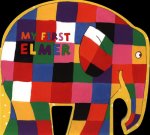
My First Elmer
8.98 € -23 % -

Wim Hof - Ledový muž
12.76 € -20 %
Darujte túto knihu ešte dnes
- Objednajte knihu a vyberte Zaslať ako darček.
- Obratom obdržíte darovací poukaz na knihu, ktorý môžete ihneď odovzdať obdarovanému.
- Knihu zašleme na adresu obdarovaného, o nič sa nestaráte.
Viac informácií o knihe Handbook of Diagnostic Classification Models
Nákupom získate 685 bodov
 Anotácia knihy
Anotácia knihy
This handbook provides an overview of major developments around diagnostic classification models (DCMs) with regard to modeling, estimation, model checking, scoring, and applications. It brings together not only the current state of the art, but also the theoretical background and models developed for diagnostic classification. The handbook also offers applications and special topics and practical guidelines how to plan and conduct research studies with the help of DCMs. Commonly used models in educational measurement and psychometrics typically assume a single latent trait or at best a small number of latent variables that are aimed at describing individual differences in observed behavior. While this allows simple rankings of test takers along one or a few dimensions, it does not provide a detailed picture of strengths and weaknesses when assessing complex cognitive skills. DCMs, on the other hand, allow the evaluation of test taker performance relative to a potentially large number of skill domains. Most diagnostic models provide a binary mastery/non-mastery classification for each of the assumed test taker attributes representing these skill domains. Attribute profiles can be used for formative decisions as well as for summative purposes, for example in a multiple cut-off procedure that requires mastery on at least a certain subset of skills. The number of DCMs discussed in the literature and applied to a variety of assessment data has been increasing over the past decades, and their appeal to researchers and practitioners alike continues to grow. These models have been used in English language assessment, international large scale assessments, and for feedback for practice exams in preparation of college admission testing, just to name a few. Nowadays, technology-based assessments provide increasingly rich data on a multitude of skills and allow collection of data with respect to multiple types of behaviors. Diagnostic models can be understood as an ideal match for these types of data collections to provide more in-depth information about test taker skills and behavioral tendencies.
 Parametre knihy
Parametre knihy
Zaradenie knihy Knihy po anglicky Society & social sciences Education Organization & management of education
276.65 €
- Celý názov: Handbook of Diagnostic Classification Models
- Podnázov: Models and Model Extensions, Applications, Software Packages
- Autor: Matthias von Davier, Young-Sun Lee
- Jazyk:
 Angličtina
Angličtina - Väzba: Pevná
- Počet strán: 656
- EAN: 9783030055837
- ID: 20637624
- Nakladateľ: Springer Nature Switzerland AG
- Hmotnosť: 1166 g
- Rozmery: 235 × 155 × 41 mm
- Dátum vydania: 24. October 2019
Obľúbené z iného súdka
-
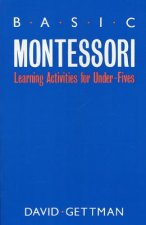
Basic Montessori
17.87 € -8 % -

Smartest Kids in the World
13.99 € -12 % -

First Little Readers Parent Pack: Guided Reading Level B
22.58 € -10 % -

First Little Readers: Guided Reading Level C (Parent Pack)
24.01 € -5 % -

Outcomes Intermediate: Workbook with CD
24.31 € -

Art of Coaching Teams - Building Resilient Communities that Transform Schools
30.24 € -21 % -

You, Your Child, and School
17.36 € -5 % -

Teaching Mindfulness to Empower Adolescents
30.55 € -

How to Win at College
16.96 € -17 % -

Form Drawing and Colouring
16.55 € -23 % -

Visible Learning: Feedback
39.03 € -

How to Be Heard
16.34 € -19 % -
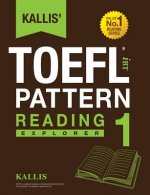
Kallis' TOEFL iBT Pattern Reading 1
22.58 € -

Whatever Happened to Margo?
11.13 € -23 % -

Pearson REVISE Edexcel GCSE Maths Foundation Guided Revision Workbook - 2023 and 2024 exams
9.39 € -

Search for a Theology of Childhood
41.79 € -

Pearson REVISE Edexcel GCSE (9-1) Combined Science Higher Guided Revision Workbook
15.22 € -

OCA/OCP Java SE 8 Programmer Certification Kit
75.82 € -23 % -

Keynote Proficient with DVD-ROM
42.30 € -

OET Writing Strategy Guide
22.07 € -
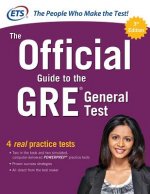
Official Guide to the GRE General Test, Third Edition
32.59 € -21 % -

F in Exams
9.29 € -14 % -

Cleverlands
16.14 € -16 % -

Responsive Teaching
24.42 € -

Ten Ways to Destroy the Imagination of Your Child
18.49 € -4 % -

Dr. Montessori's Own Handbook
14.40 € -23 % -
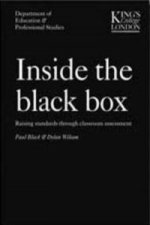
Inside the Black Box
8.37 € -5 % -

Pearson REVISE Edexcel GCSE English Language Guided Revision Workbook - 2023 and 2024 exams
9.39 € -
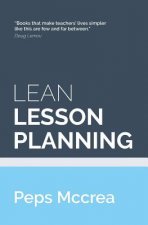
Lean Lesson Planning
22.88 € -

Innovative University
27.58 € -18 % -

Hundred Languages of Children
53.13 € -

Summerhill and A S Neill
43.83 € -

Concept-Based Curriculum and Instruction for the Thinking Classroom
44.24 € -

On the Nature of the Psyche
17.87 € -4 % -

Pearson REVISE Edexcel GCSE Business Revision Workbook for the 2023 and 2024 exams
9.70 € -

Kallis' TOEFL iBT Pattern Speaking 1
22.58 € -

Mathematics Formative Assessment, Volume 2
46.39 € -
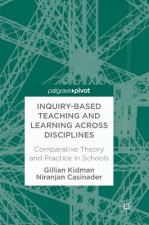
Inquiry-Based Teaching and Learning across Disciplines
83.18 € -

Forest School for All
46.39 € -1 % -
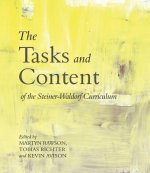
Tasks and Content of the Steiner-Waldorf Curriculum
21.96 € -23 % -

Creating Significant Learning Experiences, Revised and Updated - An Integrated Approach to Designing College Courses
45.67 € -

Media Education - Literacy, Learning and Comtemporary Culture
36.58 € -

Teaching of Science in Primary Schools
49.66 € -

27 Ways to Increase Your Child's IQ
14.50 € -

Pearson REVISE Edexcel GCSE History Model Answer Workbook - 2023 and 2024 exams
9.39 € -
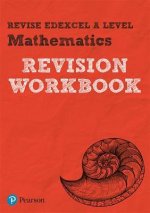
Pearson REVISE Edexcel A level Maths Revision Workbook
16.75 € -

Principal - Three Keys to Maximizing Impact
34.43 € -

Principal's Companion
54.16 € -

Formative Assessment
31.57 € -10 %
Osobný odber Bratislava a 2642 dalších
Copyright ©2008-24 najlacnejsie-knihy.sk Všetky práva vyhradenéSúkromieCookies


 21 miliónov titulov
21 miliónov titulov Vrátenie do mesiaca
Vrátenie do mesiaca 02/210 210 99 (8-15.30h)
02/210 210 99 (8-15.30h)